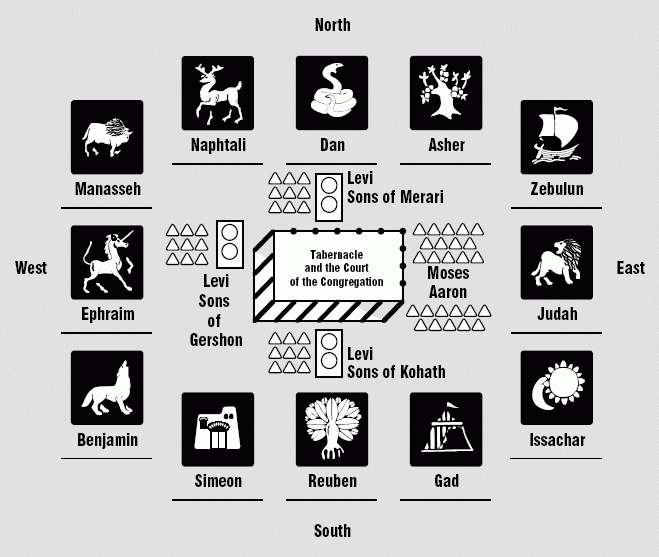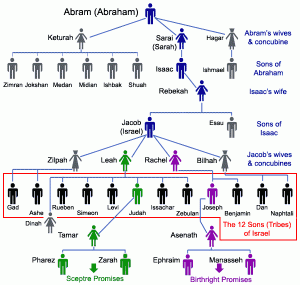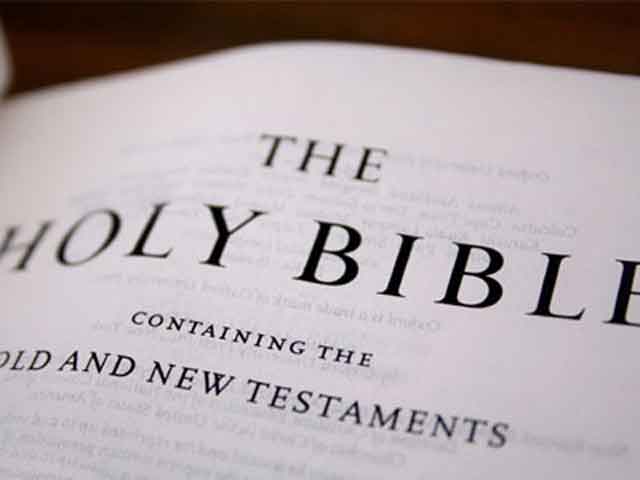Question
Gramps,
Hi. I want to know what the distinguishable factors, blessings and responsibilities are between being from the house of Ephraim and Joseph regarding patriarchal blessing Lineage? Mainly Joseph I don’t understand. If Joseph was split into 2 tribes, being Ephraim and Manasseh, how is it that someone can be in a tribe that was split into 2? That already makes an apparent 13 tribes and with Joseph added that’s 14 tribes. Does being in the house of Joseph have precedence over Ephraim?
Aubrey
Answer
Dear Aubrey,
I sincerely thank you for giving me the opportunity to study this topic more fully. For those that are unaware, sometimes a person’s patriarchal blessing declares that person to be of the tribe of Joseph without specifying either Ephraim or Manasseh. Joseph is indeed a tribe separate from that of the others (including his prominent children).
When it comes to the blessings and duties of Joseph, Ephraim, and Manasseh, I can find little difference between the three. They are all heirs to the Abrahamic covenant through Joseph. I have previously compared the blessings of Ephraim and Manasseh, which I quote again here:
“Like Ephraim’s descendants, the tribe of Manasseh is heir to all the blessings and obligations given to Abraham, Isaac, Jacob, and Joseph. A study of those patriarchs will show that regardless of which tribe you fall in, your blessing is bounteous. Studying Manasseh specifically, you will find that he is often mentioned in company with his brother Ephraim. Even centuries later, he is still mentioned alongside his sibling. The latter-day duty of Manasseh is probably best described by Moses as he blessed the tribe of Joseph: ‘[Joseph’s] glory is like the firstling of his bullock, and his horns are like the horns of unicorns: with them he shall push the people together to the ends of the earth: and they are the ten thousands of Ephraim, and they are the thousands of Manasseh.’ (Deuteronomy 33:17, see 13-17).
“Along with Ephraim, Manasseh is responsible to gather the other tribes. Ephraim is to head up this great work, but Manasseh is to roll up his sleeves and be there at his side. As Manasseh does this, he will reap the blessing of the patriarchs with visible results. This grand outpouring of bounty is a sign of the times. The children of Lehi (a famous Manassehite) will prosper as proof that the Lord is speeding His coming. ‘But before the great day of the Lord shall come, Jacob shall flourish in the wilderness, and the Lamanites shall blossom as the rose’ (D&C 49:24).”
Joseph is well-known as one of the 12 sons of Israel. This number became a symbol of God’s power, government, or priesthood, and so we find biblical authors going to great lengths to preserve it. We start with Israel himself blessing Joseph’s sons: “And now thy two sons, Ephraim and Manasseh, which were born unto thee in the land of Egypt before I came unto thee into Egypt, are mine; as Reuben and Simeon, they shall be mine” (Genesis 48:5). Simeon and Reuben were cut out of the original 12 on account of their transgressions (see Gen. 35:22 and Gen. 34:25-26) and Joseph’s sons took their place. Generations later, when Moses gave his great farewell blessing to the tribes, he lists the original 12, complete with Reuben and Simeon. Even Joseph is there, but Ephraim and Manasseh are absent (Deuteronomy 27:11-13). When blessing the tribes individually, Moses plays a funny grouping game. He once again includes Reuben. He also includes Joseph, Ephraim, and Manasseh, but he groups all three together in a single blessing. He does the same with Zebulun and Issachar. Simeon is again dropped, yielding an even 10 blessings (Deut 33). When it came to land inheritance, Reuben and Simeon are restored as tribes, with Ephraim and Manasseh standing in for Joseph. The nice, round number 12 is preserved because Levi is set apart for a special ministry, so they were excluded from the 12 for a holy purpose (see Joshua 13-14). Finally, the list of 12 reemerges in the book of Revelation. In this case, we again have Reuben and Simeon. Manasseh is even present, as is Joseph, although Ephraim is absent (he is either represented through Joseph as the birthright son, or is missing for an undisclosed reason). Also absent is Dan, bring our number to a nice, even 12 (Revelation 7:4-8).
The moral of these stories, from my point of view, is best illustrated in an exchange the Savior had with the Jewish leadership. “They answered and said unto him, Abraham is our father. Jesus saith unto them, If ye were Abraham’s children, ye would do the works of Abraham. … Ye do the deeds of your father. … Ye are of your father the devil” (John 8:39-44). A person may be an heir to the blessings of Abraham, Isaac, and Jacob by birth or by patriarchal blessing, but the divine probate does not perform DNA tests. If an heir wishes to claim the blessings, that person must live the lives of the patriarchs. Failure to do so may leave that person cut off, as sometimes was Reuben, Simeon, or Dan. But thank God for repentance and His mercy! For walking uprightly in his or her covenants, regardless of unrighteous parents, will draw down on a person the full blessings promised by this lineage, as in the cases of Reuben and Simeon.
Gramps






